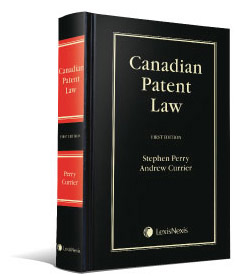
Practice Overview
PCK is a leading Canadian intellectual property practice founded by Stephen Perry and Andrew Currier, recognized thought leaders in Canadian Intellectual Property Law.
PCK comprises three firms: Perry + Currier Inc., a patent and trademark agency whose patent and trademark agents are regulated by the College of Patent and Trademark Agents / Collège des agents de brevets et des agents de marques de commerce (CPATA/CABAMC); PCK IP Lawyers PC (formerly known as “PCK IP Lawyers LLP”), a law firm regulated by the Law Society of Ontario and PCK IP Lawyers (USA) P.C., a law firm regulated by the District of Columbia Bar. The three firms operate as separate practices due to local regulatory requirements.
PCK supports a broad range of intellectual property and commercial services around IP Identification, IP Protection, IP Portfolio Management, IP Strategy and Counsel, IP Commercialization, IP Dispute Resolution and IP Litigation.
PCK professionals include seasoned patent and trademark agents, general counsel, commercial and litigation counsel with experience across a broad range of industries and technologies. For each client, we tailor the right combination of professionals and technology to meet each client’s needs.
Whatever your IP need, PCK offers the right team and services to identify, protect, and commercialize your IP investments.
PCK: “IP counsel as innovative as you are®”
Like many of our clients, we are technology innovators. We take an innovative approach to all aspects of our service.
Over the past several years, PCK has invested substantial resources to automate the processes in the patent and trademark prosecution process, while enhancing work product and service quality. Our platform uses state-of-the-art database management and proprietary computer-driven workflows developed by us for the exclusive benefit of PCK clients.
Our paperless, software and database driven PCK IP Platform is unique in Canada and distinguishes us from our peers. We have the ability to offer customized service levels and fee structures tailored to our client’s needs. We carefully manage costs while never compromising quality.
PCK IP Professionals have experience and backgrounds across a broad range of industries and technical fields, including: Software, Telecommunications, Mobile Applications, Medical Devices, Mechanical Devices, Display Technology, Electronics, Semiconductor Fabrication, Financial Services, Business Methods, Aerospace, Biotechnology, Chemistry, Pharmaceuticals, Nanotechnology, Materials and Metallurgy, and Cleantech.
When it comes to patents, by volume we are one of Canada’s leading originating patent drafting firms. Click to view a sample of some Representative Patents by PCK IP professionals.
Our clients not only love our patent advice, but we also excel at building and managing complex, large global trademark portfolios. The public databases don’t let us show our trademark work as easily as our patent work, but give us a call and we’ll tell you more about our expertise in trademarks.
At PCK we like to maintain an open dialogue about fees and value. We believe each client must be satisfied he or she is getting the right mix of services, at the right level and the right value.
Our diverse and experienced team of IP professionals and our advanced use of technology and project management skills allow us to adapt our services and fees structures to suit individual client needs. We offer competitive, flexible fee and service arrangements that you and your financial managers will like.
We would be pleased to talk to you about our approach to budget and resource management and discuss our various structures including fixed-fee, capped, project or per-service rates that balance your budget, risk profile and priorities.
Members of our firm are authors or contributors to the following publications:
Canada Chapter (2015 edition of The International Comparative Legal Guide to: Patents; published by Global Legal Group Ltd, London)
(August, 2014), Stephen Perry and Peter Bormann (co-authors)

Canadian Bar Association Legal Futures Initiative (5.2 Innovation in Action: Business Processes) (August, 2014), Andrew Currier (author)
Canadian Patent Law (Butterworths, 2012, Second Edition, 2014), Stephen Perry and Andrew Currier (co-authors)
Supreme Court of Canada (Citation: Teva Canada Ltd. v. Pfizer Canada Inc., 2012), Canadian Patent Law, Stephen Perry and Andrew Currier
Canadian Forms and Precedents – Commercial Transactions (Chapter on Patents and Industrial Designs) (Butterworths), Stephen Perry (author)
Image Guided Interventions (Chapter on Intellectual Property Management) (Elsevier, 2011), Andrew Currier (author)
Canadian Intellectual Property Office Grapples with Business Method Patents (IPO’s International Patent Committee Newsletter) (September 2013), Arya Ghadimi, Andrew Currier, and Stephen Perry (co-authors)














